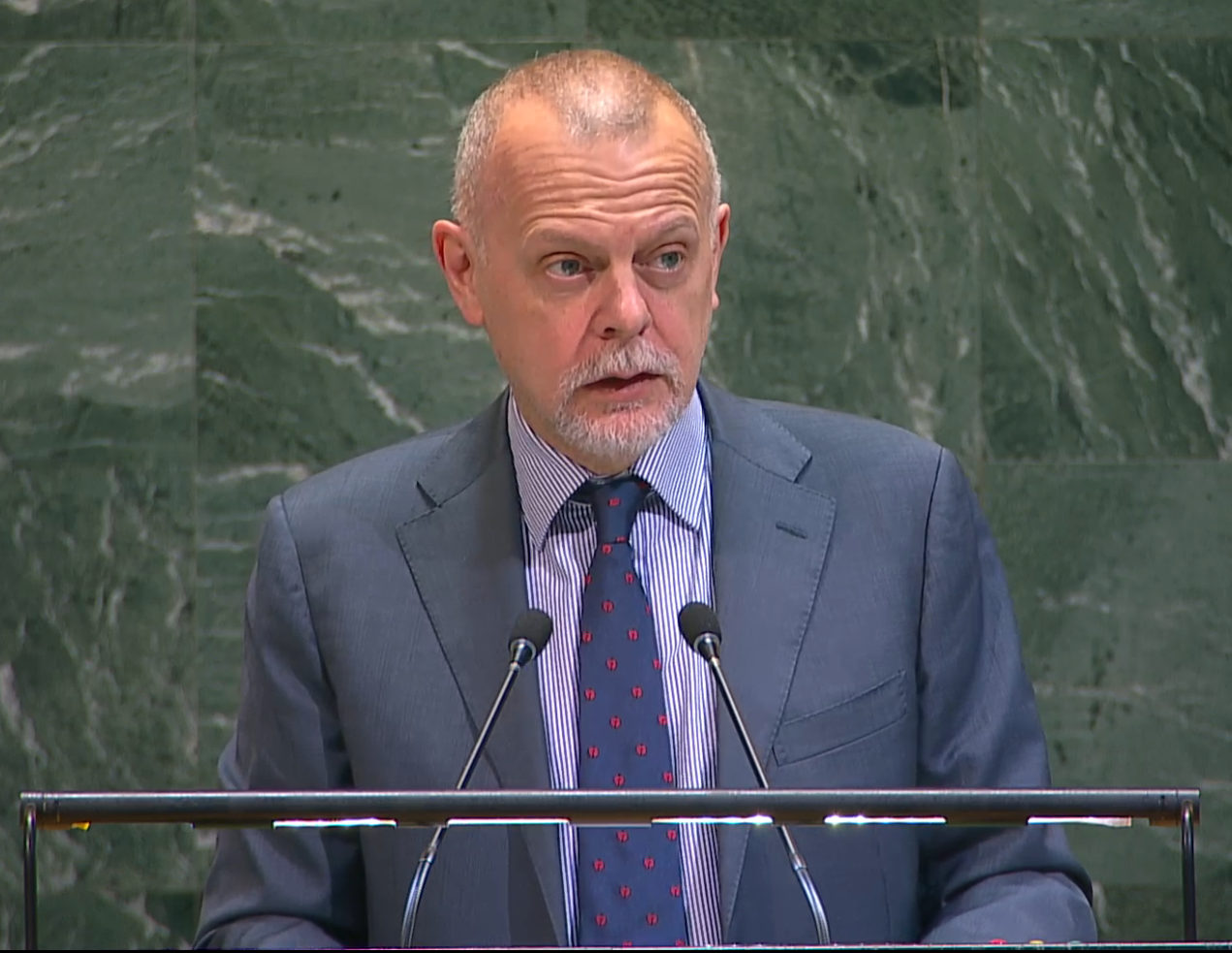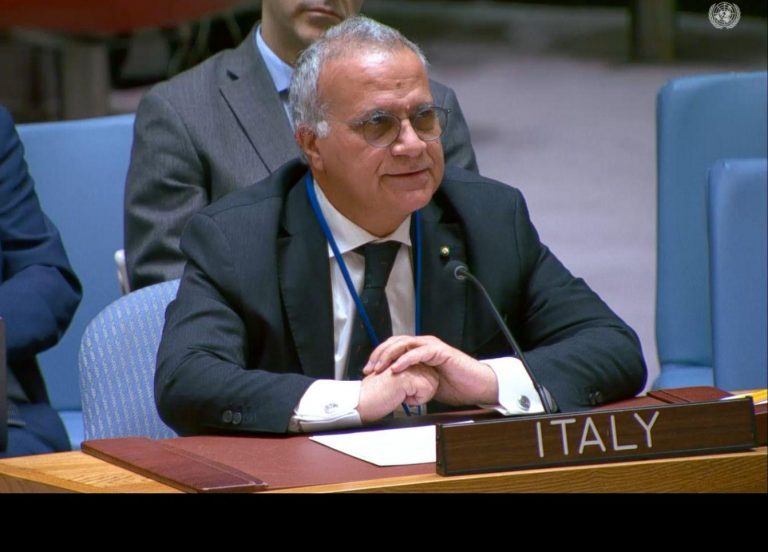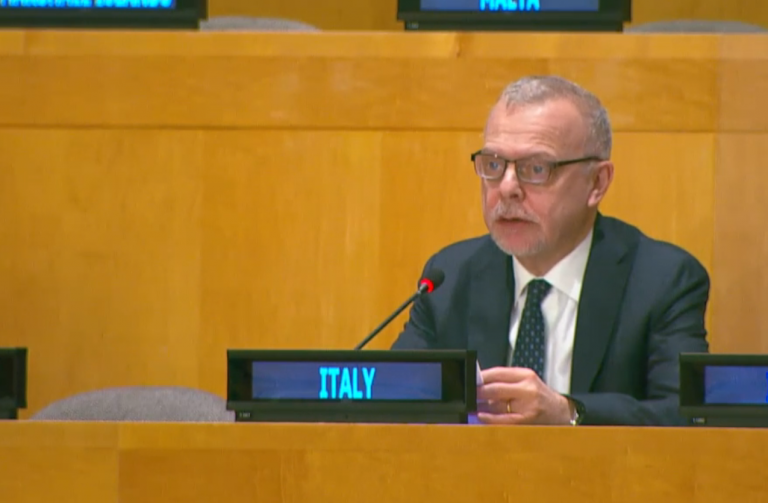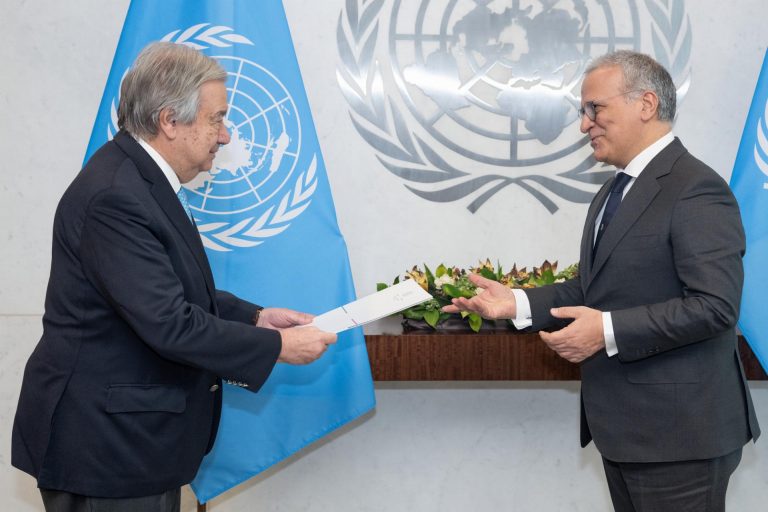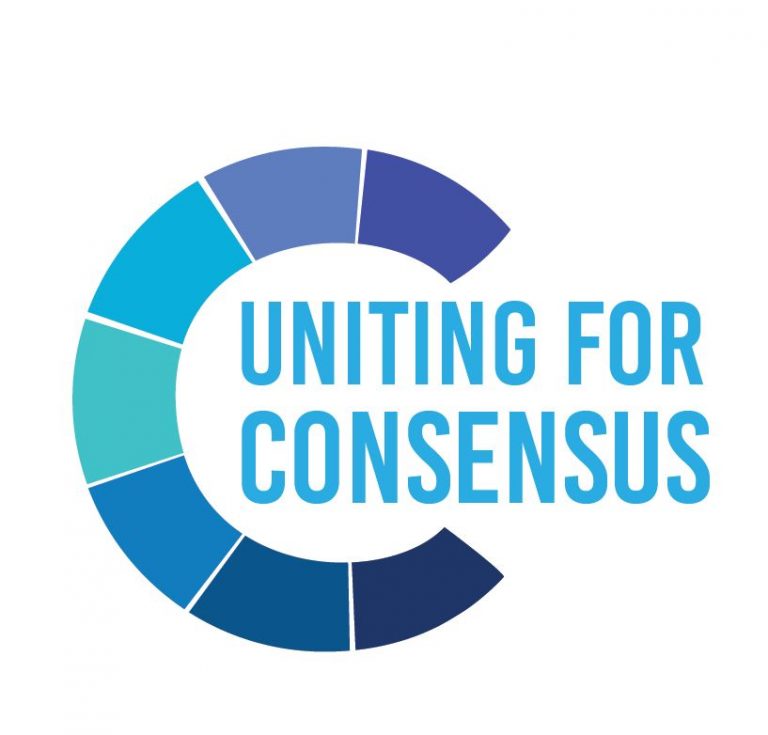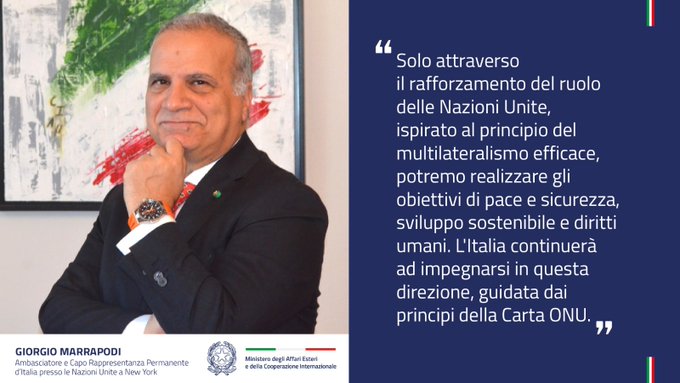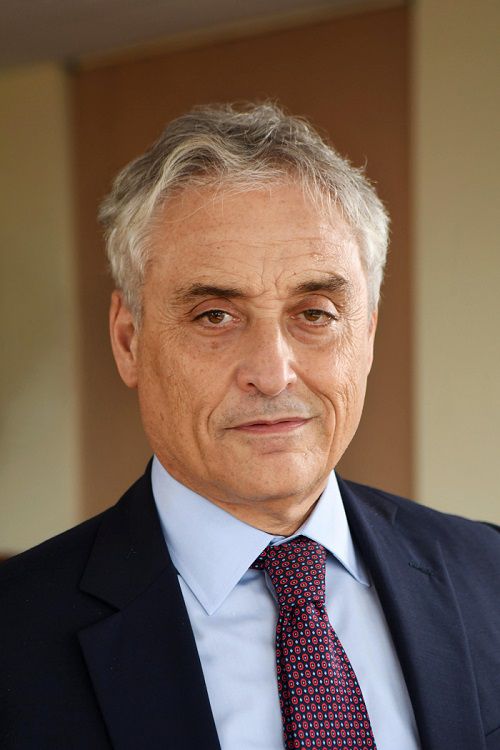Madame President,
On behalf of the pro-reform and cross-regional group Uniting for Consensus (UfC)[1], I wish to express our appreciation for convening this debate.
We would like to thank you for appointing two highly qualified and capable Co-chairs for the Inter-Governmental Negotiations (IGN) process, Amb. Tareq Albanai, Permanent Representative of Kuwait and Amb. Lise Gregoire-van Haaren, Permanent Representative of the Kingdom of the Netherlands. UfC looks forward to engaging with them constructively, building on the momentum generated during the past cycles of the IGN, in a spirit of openness and a shared commitment to progress.
The Group expresses its full support to the Co-chairs and trusts that their leadership will continue to guide the process in an impartial and balanced manner. We reaffirm that the IGN remains the sole legitimate and inclusive forum to advance discussions on Security Council reform.
Madame President,
Our collective objective must be to pursue a reform that makes the Security Council truly representative, democratic, accountable, transparent, effective, and responsive to evolving global challenges, while addressing its existing imbalances rather than perpetuating or worsening them.
We look forward to continuing to build on the existing convergences to reach an agreement on a comprehensive proposal that will “garner the widest possible political acceptance by Member States”, as stated in decision 62/557.
In this context, the Co-Chairs have a key role in fostering a productive Member State-driven dialogue in the IGN. The last sessions of the IGN not only allowed for constructive discussions on the five interlinked clusters of the Reform but also contributed to deepening the debate on concrete model proposals: now is the time to further build on convergences and work towards bridging the remaining divergences. There are no shortcuts in this process.
The advantages of open, frank and pragmatic discussions and consensus building within the IGN are also highlighted by the fact that some of the proposals put forward by UfC, such as the rotating seat reserved for SIDS, have been taken into consideration by a broader grouping of Member States and negotiating groups.
Let me recall that, over the years, UfC has listened carefully to other positions and has even adapted its initial proposal for reform, demonstrating flexibility and capacity to evolve. Therefore, we strongly encourage and to continue to actively and constructively engage with this process. The more voices, proposals, and commitments heard, the broader, more beneficial, and more democratic the process will be – ultimately leading to a UNSC that is able to deliver on its primary mandate to maintain international peace and security and is fit to respond to global challenges and crises of today and the future
Madame President,
The UfC’s model is a realistic proposal that focuses on enhancing the Council’s representation: we propose to add more elected, non-permanent seats, and to create longer-term, re-electable seats, to ensure accountability to the wider membership.
Allow me to emphasize that adding elected non-permanent members has not faced any objections. To date, 59 Member States have never served on the Security Council. Our proposal would allow more Member States to have the opportunity to serve on the Council. On the other hand, the establishment of new permanent seats would not only block greater representation in the future but would go against the principle of the sovereign equality of all Member States.
In this spirit, we are fully cognizant of the need to redress the historical injustice against Africa. Thus, we recognize the imperative need to strengthen the presence in the Council of the African continent as well as other underrepresented regions such as the Asia-Pacific, and Latin America and the Caribbean, and we remain committed to finding a practical solution that takes into account their aspirations. Furthermore, the General Assembly recently agreed to continue discussions on the issue of representation of cross-regional groups, taking into account that Small Island Developing States (SIDS), Arab States and others, such as the Organization of Islamic Cooperation, have been mentioned in IGN discussions.
We oppose the creation of new permanent seats, since we firmly believe that new, elected, seats are the best way to ensure that the Security Council is more representative of, and more accountable to, the broader UN membership. Let us be realistic: How could any enlarged Security Council with more permanent members and more vetoes ever effectively discharge its functions?
In this context, it is equally fundamental to address the use and abuse of the veto that is preventing the Council from effectively fulfilling its vital mandate of maintaining international peace and security. While advocating for the suppression of the veto, we should act together in the immediate term to move towards its limitation in specific circumstances, such as in cases of mass atrocities and war crimes.
Finally, at a time when the United Nations faces mounting challenges, and increase efficiency has become an urgent necessity, UfC believes that any proposal should thoroughly examine the Security Council working methods for it to be a truly comprehensive reform. In particular, the Security Council and the General Assembly must complement and reinforce each other’s mandates. We also advocate for closer cooperation with the Peacebuilding Commission as well as more consistent engagement with multilateral and regional partners, such as the African Union’s Peace and Security Council.
In conclusion, UfC is committed to continue to work collaboratively with you, Madame President, the Co-Chairs of the IGN, the other Member States and negotiating groups, and to advocate for a reform for all, reflective of the shared aspirations for a Security Council that truly serves the global community.
I thank you.
[1] Argentina, Canada, Colombia, Costa Rica, Italy, Malta, Mexico, Pakistan, Republic of Korea, San Marino, Spain and Türkiye.







